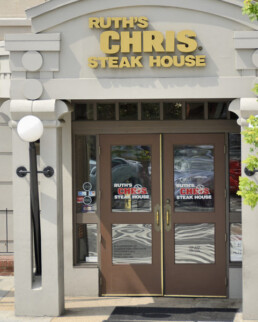California Supreme Court Decides Non-Discretionary Payments Are To Be Included When Calculating Overtime Pay
In a published opinion, Ferra v. Loews Hollywood Hotel LLC, 11 Cal. 5th (2021), the California Supreme Court examined the issue of whether the state legislature intended the term "regular rate of compensation" as it is used under California Labor Code Section 226.7(c) has the same meaning as the term "regular rate of pay" pursuant to California Labor Code Section 510(a), so that an employer's calculation of overtime or premium pay owed to an employee must account for the employee's hourly wages and non-discretionary payments for work performed by the employee during missed meal or break and recovery periods. The Court determined that it does!
What are non-discretionary payments?
Non-discretionary payments are payments for an employee's work that are owed under a prior contract, agreement or promise between the employer and the employee. Non-discretionary payments are not determined at the sole discretion of the employer, meaning that an employee will have meaningful input when arriving at the agreement to receive non-discretionary payments from an employer. Examples of non-discretionary payments or wages include hiring bonuses, attendance bonuses, individual or group production bonuses, and incentive bonuses.

What happened in Ferra?
Non-discretionary payments were at the heart of the issue underlying the Ferra lawsuit filed before the California Supreme Court. Jessica Ferra, a bartender employed by Lowes Hollywood Hotel LLC, filed a lawsuit against Loews alleging that the company failed to include her non-discretionary payments - specifically quarterly incentive payments - when calculating her regular rate of pay for overtime or premium payments owed to her for work performed during missed meals, and rest break periods as required by the California Labor Code Section 510(a). Loews argued that under its interpretation of the law, Jessica was only to be compensated her hourly wage - or regular rate of compensation - under California Labor Code Section 226.7(c), meaning that the company should not have to include quarterly incentive payments in calculating overtime or premium payments that Jessica accrued while working through her meal and rest break time.
At trial and on appeal, Jessica Ferra lost both times, meaning the trial court and appeals court agreed with Loews that "regular rate of compensation" and "regular rate of pay" had two different definitions, despite being used interchangeably throughout the California Labor Code and by the Industrial Welfare Commission (IWC). However, the California Supreme Court granted review of Ferra's lawsuit and reversed the lower court decisions. Essentially, the California Supreme Court found Loews' interpretation of the law to be incorrect, and that "regular rate of compensation" and "regular rate of pay" have the same meaning under California wage and labor laws.
To arrive at the conclusion that "regular rate of compensation" under Labor Code Section 226.7(c) and "regular rate of pay" under Labor Code Section 510(a) are synonymous, the California Supreme Court unpacked in detail the lengthy legislative history behind the creation of the Industrial Welfare Commission (IWC); the Court reviewed the state legislature's adoption of California Labor Code Sections 226.7(c) and 510(a); and, it discussed how California's wage and labor policies are intended to mirror federal law where consistent, mainly, the Fair Labor and Standards Act (FLSA). The underlying goal of California and Federal wage and labor laws are meant to protect employees from meal and rest break violations by penalizing employers for non-compliance with meal and rest break laws.
Key Takeaways
One key takeaway from the Ferra lawsuit for employees is that regular rate of compensation and regular rate of pay are synonymous or have the same meaning. The California Supreme Court noted during its discussion of the legislative history that the Industrial Welfare Commission adopted an overtime or premium pay requirement for meal or rest break period violations using the term "regular rate of compensation", while at the same time the IWC issued an adopted wage order revising overtime policies that included use of the term "regular rate of pay". In short, Loews' interpretation was wrong as the Court outlined several instances in California's legislative history where "compensation" and "pay" along with "regular rate" were used interchangeably to describe how employees wages are to be calculated. Ultimately, Ferra determined that employees are entitled to receive non-discretionary wages or payments as part of the calculation for the employee's pay - or compensation - for overtime work performed during missed meal and rest break time.
The second key takeaway from the Ferra lawsuit for employees is that the California Supreme Court ruled that its decision would have retroactive application in workplaces throughout California. What this means is that employees in California may be owed additional overtime or premium pay for non-discretionary wages or payments accrued for work performed by the employee during missed meal and rest break periods that were not calculated in the employee's regular rate of compensation or regular rate of pay. Each case will depend on the specific facts, so it is important to consult with an experienced labor law attorney to assess the specifics of your case to determine if you are owed additional compensation and unpaid wages from your employer.
Free Consultation
Srourian Law Firm, with locations in Los Angeles, Westwood, Woodland Hills, and Orange County is experienced in all aspects of employment law including wage, labor, meal and rest break violations in the workplace, and have aggressively represented employees in Los Angeles, Hollywood, Santa Monica, Orange, Irvine, Anaheim, Santa Ana, Newport Beach, Costa Mesa, Fullerton, Tustin, Mission Viejo, San Clemente, Garden Grove, Laguna Niguel, Brea, Fountain Valley, Aliso Viejo, Yorba Linda, Westminster, Laguna Hills, Cypress, and La Habra.
If you or someone you know suffered employment violations, you may have certain employee rights under state and federal law, and may be entitled to compensation as a part of a class action lawsuit. Please contact us to speak with one of our lawyers for a free consultation.
Know the Law. Know your Rights.

Know the Law. Know your Rights.
Generally, employees in California are entitled to a rest break and/or meal break when they work more than three and a half hours a day. Specifically, state law mandates a 10-minute rest break for every four hours worked in a day; and a 30-minute meal break if a shift is more than five hours. An additional 30-minute meal break is required by law if an employee works ten hours in a day.
There are some exceptions depending on the type of employee or industry, such as construction, commercial drivers, or utility workers. The vast majority of employees, however, are protected by state law and employers are violating your rights if you are not provided breaks according to the statute. If your employer is not providing you with mandated meal or rest breaks, you have the right to file a lawsuit and seek compensation.
California Labor Code 512(1)(a)
An employer shall not employ an employee for a work period of more than five hours per day without providing the employee with a meal period of not less than 30 minutes, except that if the total work period per day of the employee is no more than six hours, the meal period may be waived by mutual consent of both the employer and employee. An employer shall not employ an employee for a work period of more than 10 hours per day without providing the employee with a second meal period of not less than 30 minutes, except that if the total hours worked is no more than 12 hours, the second meal period may be waived by mutual consent of the employer and the employee only if the first meal period was not waived.
Employees may voluntarily waive meal breaks in certain circumstances. For example, if the shift is no more than six hours, the employee may waive the required meal break. An employee, however, may generally not waive the second mandated meal break required for a 10-hour shift if they waived the first meal break. The laws are often complicated, so employees should ask for clarification from a supervisor or human resources; as well as consult with an experienced employment attorney if there appears to be a pattern of violations.
Rest breaks are required by law for any shift lasting more than three and a half hours, and employees must be given a paid rest break every four hours or major fraction thereof. Employees may also voluntarily work during a rest break, but under no circumstances may the employer require you to work during your mandated breaks.
FREE CONSULTATION
Srourian Law Firm, with locations in Los Angeles, Westwood, Woodland Hills, and Orange County is experienced in all aspects of employment law including failure to provide meal or rest breaks and have aggressively represented employees in Los Angeles, Hollywood, Santa Monica, Orange, Irvine, Anaheim, Santa Ana, Newport Beach, Costa Mesa, Fullerton, Tustin, Mission Viejo, San Clemente, Garden Grove, Laguna Niguel, Brea, Fountain Valley, Aliso Viejo, Yorba Linda, Westminster, Laguna Hills, Cypress, and La Habra.
If you or someone you know suffered employment violations as an employee such as being denied meal and rest breaks in California, you may have certain employee rights under state and federal law and may be entitled to unpaid wages, interest, attorneys’ fees and costs, and/or be entitled to compensation as a part of the class action lawsuit. Please contact us to speak with one of our experienced lawyers for a free consultation.
Srourian Law Firm Files Class Action Lawsuit Against Ruth's Chris Restaurant
Srourian Law Firm has filed a class action lawsuit on behalf of former and current workers of Ruth's Chris Steak House workers. The lawsuit includes both front of house and back of house workers, including waiters, hosts, barbacks, runners, and kitchen staff for all restaurant locations in the State of California. The lawsuit alleges that Ruth's Chris violated various provisions of the California Labor Code, including failure to pay minimum wage, failure to pay overtime, failure to authorize meal breaks, failure to authorize rest breaks, failure to timely pay final paychecks, failure to provide proper paystubs, and violation of California Private Attorney General Act, among several other violations.
The lawsuit further alleges unlawful restaurant policies of denying and discouraging breaks based on providing team meals to be eaten quickly, lack of adequate resting facilities, and a requirement to keep inaccurate records of meals breaks. The lawsuit further alleges the requirement for workers to take on-duty meal breaks in violation of California leave.
SROURIAN LAW FIRM’S CLASS ACTION LAWSUIT
The class action lawsuit, titled Adrian Quiroz v. Ruth's Chris Hospitality Group, Inc., is currently pending in Riverside Superior Court Case No. RIC1804127. If you worked for any Ruth's Chris location in California at any time from February 26, 2014, until the present and would like more information about this case, please call us at (310) 601-3131 or send an email to contact@slfla.com. Be sure to give your name, telephone number, and the best time to reach you, and an attorney will get back to you soon.
FREE CONSULTATION
Srourian Law Firm, with locations in Los Angeles, Westwood, Woodland Hills, and Orange County is aggressively pursuing claims against MedMen, and other California cannabis dispensaries in Los Angeles, Hollywood, Santa Monica, Orange, Irvine, Anaheim, Santa Ana, Newport Beach, Costa Mesa, Fullerton, Tustin, Mission Viejo, San Clemente, Garden Grove, Laguna Niguel, Brea, Fountain Valley, Aliso Viejo, Yorba Linda, Westminster, Laguna Hills, Cypress, and La Habra. If you or someone you know suffered violations of the California Labor Code in relation to their employment with a cannabis dispensary, you may be entitled to compensation as a part of the class action lawsuit. Please contact us to speak with one of our lawyers for a free consultation.



